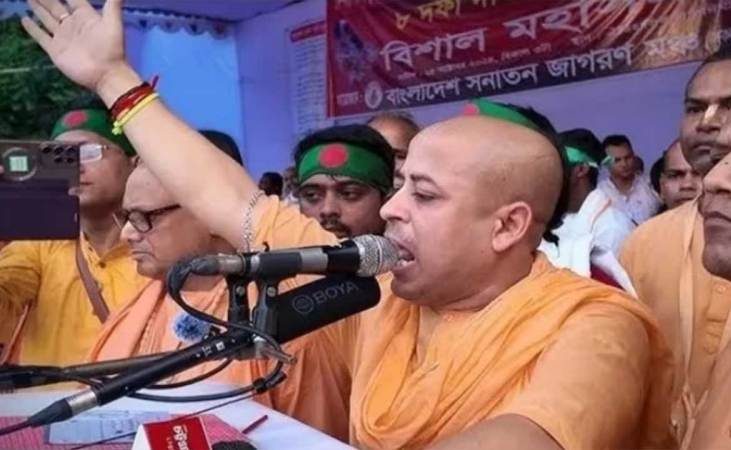Hindu saint Chinmoy Krishna Das, considered the main face of ISKCON in Bangladesh, did not get relief from the court. He will have to remain in jail for now. It is noteworthy that no lawyer could appear in the Chittagong court on Tuesday for the hearing on the bail plea of Chinmoy Krishna Das Prabhu. Therefore, the government lawyer asked for more time for the bail hearing, after which the court has fixed the next bail hearing for January 2. After this decision, Chinmoy Krishna Das will remain in jail for about a month.
Allegation of attack on the lawyer fighting the case
Importantly, ISKCON Kolkata spokesperson Radharaman Das claimed on Monday that lawyer Raman Roy, who fought Chinmay Das’s case, was badly attacked and is currently hospitalized. Chinmoy Krishna Das was arrested on 25 November in sedition cases.
Now when is the hearing?
ISKCON claimed that a Bangladeshi lawyer defending Chinmoy Krishna Das was attacked by Islamic extremists and seriously injured. He is in ICU. Following the attack, the lawyers refused to appear during the bail hearing on Tuesday, following which the Chittagong court adjourned the hearing. The court has fixed the next date of hearing as January 2, 2025.
Why was Chinmoy Das arrested?
Since the removal of Sheikh Hasina’s government in Bangladesh, incidents of violence against minorities, especially Hindus, have increased. Samilit Sanatan Jagran Jot spokesperson and former ISKCON member Chinmoy Krishna Das had also held a rally in the last week of last month demanding justice in cases of violence against Hindus. 19 people including Chinmoy Das are accused of insulting the national flag of Bangladesh during the rally. The Bangladesh government says that he has been arrested not as a religious leader but on charges of treason.
Indian government expressed concern
The Government of India has also expressed concern over the arrest and denial of bail to Chinmoy Krishna Das. The Indian Ministry of External Affairs in a statement appealed to Bangladesh authorities to protect the rights of Hindus. The Government of India has expressed strong objection to this matter many times.
